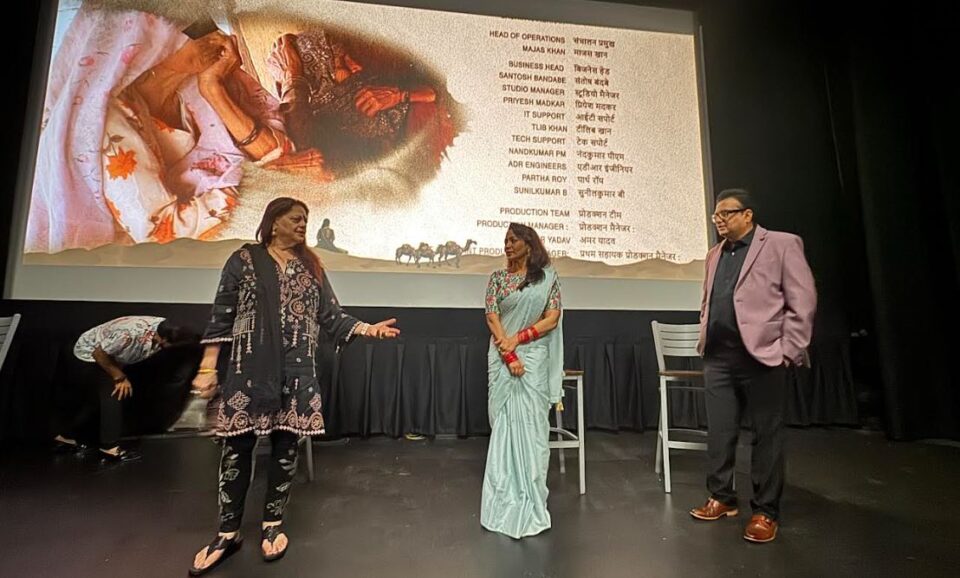BY JYOTHSNA HEGDE
Atlanta, GA, October 3, 2025: The premiere of Paro in Atlanta still lingers like an echo in the mind—unsettling, urgent, and unforgettable. Hosted by journalist Kavita Chhibber and supported by the Sheth Foundation, the evening was more than just a film screening; it was an encounter with a truth too raw to ignore.
Trupti Bhoir, the multi-talented Marathi actor, producer, writer, director, and activist, stood with her producer Sandesh Sharda to speak not only about their film but also about the countless silenced women whose stories Paro carries.
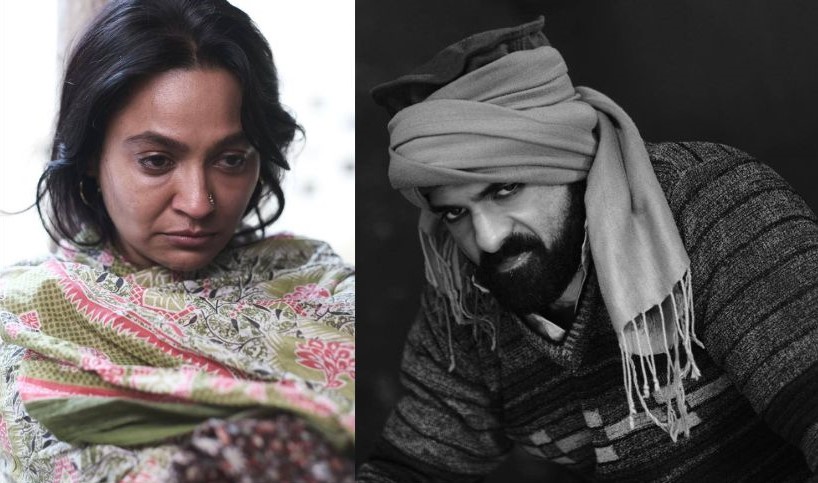
Directed by acclaimed filmmaker Gajendra Ahire, Paro is a cinematic exploration of women bought and sold as brides, stripped of identity and rights, and condemned to live as commodities. The practice, rooted in the skewed sex ratios of Northern India, has become an organized system of trafficking and abuse. As Kavita Chhibber noted in her own reporting, these women live as “persona non grata in their own lives,” invisible to society except as objects of exploitation.
As cinema, Paro is a tour de force. The cinematography alternates between lyrical landscapes and suffocating interiors, immersing the audience in both the beauty of the rural setting and the brutality of its social systems. The editing is taut, keeping the narrative moving without indulgence. The music pulses beneath the story like an unrelenting heartbeat.
Above all, it is Bhoir’s performance as Chand that anchors the film. With raw vulnerability and quiet strength, she embodies the trauma and resilience of thousands of women silenced by circumstance. Taha Shah Badussha delivers a layered performance, while Govind Namdeo is chilling in his portrayal of patriarchal cruelty normalized into everyday life. Aishwarya Sonar adds grace and poignancy to her role, completing a cast that does more than act—they bear witness.
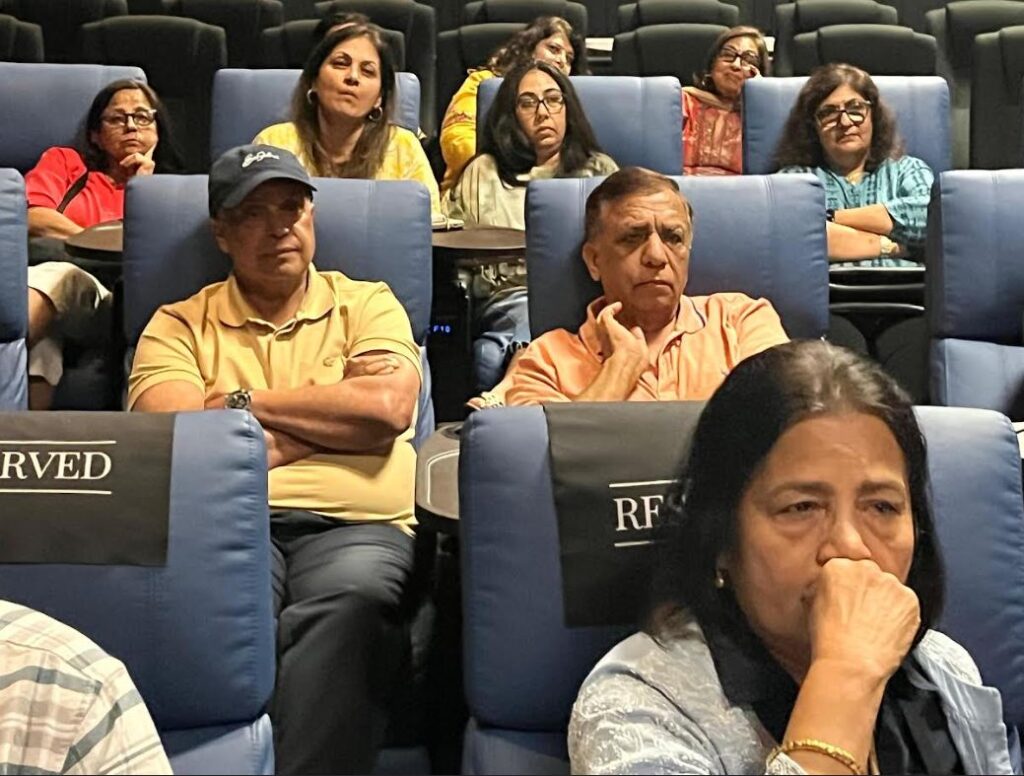
The film does not allow the audience to look away. Chand’s suffering, her lost son, her repeated violations are presented with unflinching honesty but always with dignity. There is no sensationalism, only the raw truth of lives lived in shadows. Paro is not a film you watch—it is a film that watches you back.
The authenticity of Paro is no accident. Bhoir herself spent years researching the practice, interviewing survivors, and immersing herself in reports and documentaries. Through her NGO, Shelter Foundation, she has long worked for the welfare of tribal women, and that activism seeps into every frame of the movie.
Bride slavery, trafficking, the “Paro” system—it is cheaper, as Chhibber said, to buy a woman than cattle. The practice thrives in certain districts of Haryana, where patriarchal traditions have reduced women to commodities. “So these women have no identity.” She reminded us that even in the United States, in 34 states, minor marriages are still legal. Reality is not elsewhere; it is everywhere.
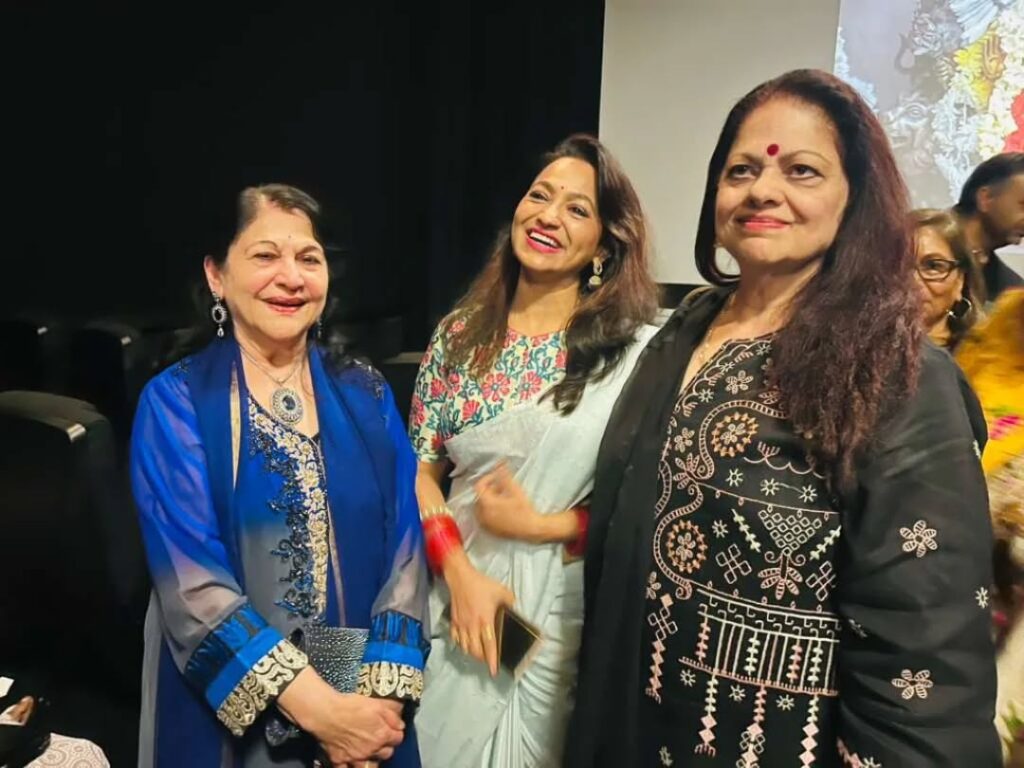
Trupti Bhoir’s Shelter Foundation has been documenting this shadow world with painstaking grit. “We went first 12 days on ground,” she recounted, “and in 10 days, I wrote down more than 4,000 women’s names by hand.” These women are invisible to governments and census reports, sold and resold across state lines, some bearing up to ten children, none recognized as legitimate. “They are unrecognized women,” she said. “Prostitution is recognized by all countries. But these women—they don’t exist.”
That erasure is precisely why Paro matters. Cinema here becomes testimony, a living archive of voices that the system would prefer to silence. Trupti spoke of bringing two actual Paros to sit before ministers in Delhi, to let lawmakers see and hear them directly. “That moment was so powerful,” she recalled, “that those who make laws were forced to listen.” Yet promises were slow, and bureaucracy dragged its feet. Her solution? Empowerment. “When women earn, they fight their own battles,” she said. Shelter Foundation has since partnered with organizations to create livelihoods, beginning with bread-making units for tribal and trafficked women.
For Sandesh Sharda, stepping into this world was unexpected. A businessman with no ties to cinema, he admitted, “I grew up watching Amitabh Bachchan and thought films were a glamorous world. Only when I got involved did I realize how much grit it takes.” When funding collapsed, he stepped in—not for profit but for conviction. “Money is not everything. Sometimes the cause is bigger than the money.” Watching the final cut during Diwali last year, he confessed, “I had goosebumps. I hugged Taha and cried. The film spoke to me—I knew we had to do something.”
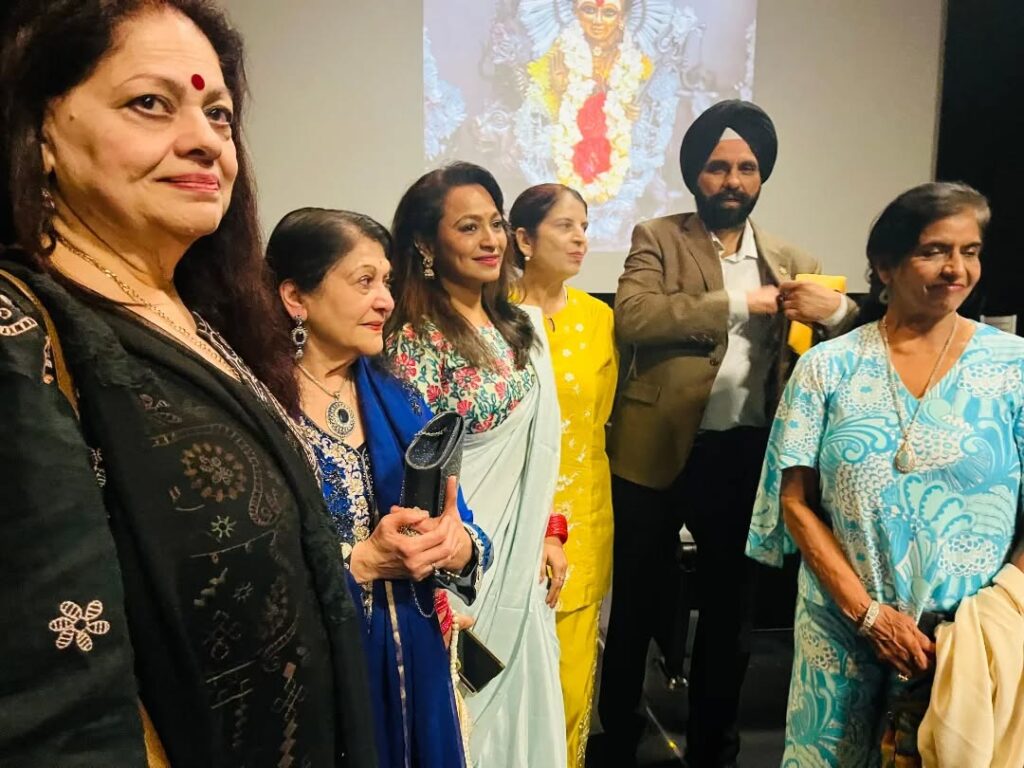
And yet, distribution remains an uphill battle. Mainstream OTT platforms, wary of controversy, have shied away. “Netflix told me it was too deep a subject,” Sandesh revealed. “Too deep! As if truth itself is a liability.” Festivals, too, have been hesitant, though Paro has already traveled widely: it debuted at the Bharat Pavilion in Cannes, screened at Harvard and Oxford, moved audiences in Boston and at the Academy in Los Angeles during Fashion Week, and was showcased at the Chicago South Asian Film Festival. At Yash Raj Studios in Mumbai, private screenings drew tears and applause. Bhoir herself has been honored with Best Actress awards, including at the LA Tribune and a Norwegian festival. Yet many doors remain closed.
Chhibber reminded the Atlanta audience of the film’s urgency: “When films like these show us the mirror, many prefer to look away. But denial does not erase reality.” She noted how Paro belongs to a long but endangered tradition of parallel cinema—films that prioritize conscience over commerce. “We must revive that art,” she said, “because otherwise, stories like these will never be told.”
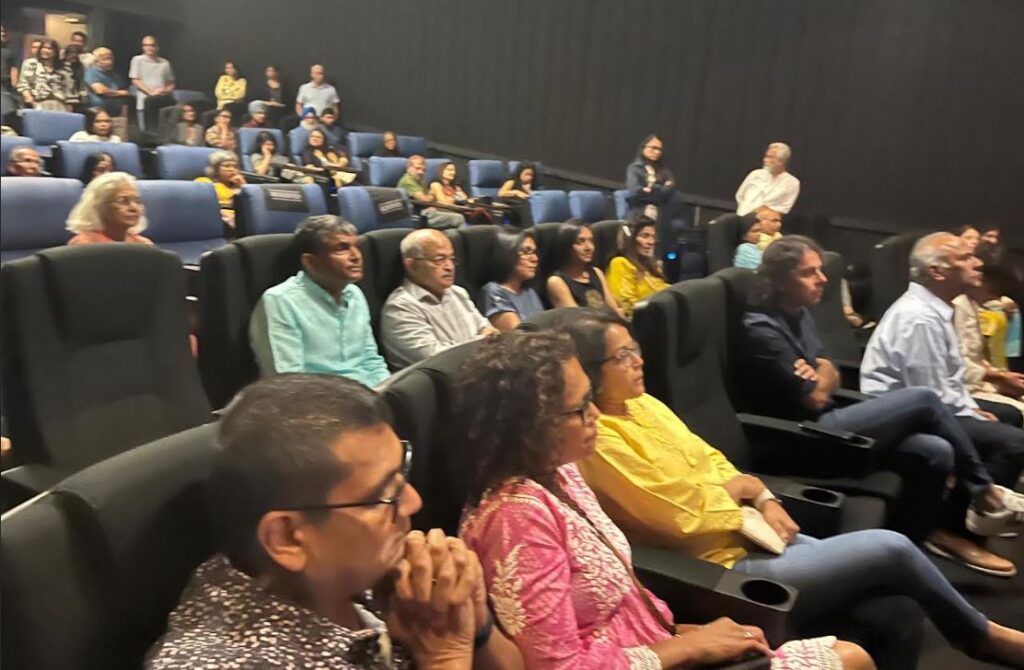
The post-screening Q&A turned into a collective reckoning. Audience members asked how they could help. Trupti’s answer was simple: “Spread the word. Talk about the film. Share on social media. Make a video and tell us what you thought. Awareness is the first step.” She added that donations to Shelter Foundation directly fund fieldwork—teams gathering data, supporting women, and building sustainable futures.
But the evening was not only about despair. It was about resilience. Trupti spoke of women she met who, despite being sold and resold, still carried dreams for their children. She spoke of her own childhood, marked by abuse, and how it deepened her empathy for survivors. She spoke of inspiration drawn from a 2013 BBC documentary that first revealed the Paro system to her. “From 2015, I chased this story,” she said. “I had to find them, I had to tell the world.”
And she did. Paro is her seventh film as producer, her first in Hindi, continuing a career dedicated to socially urgent cinema. From Touring Talkies—which preserved the dying tradition of traveling cinema—to films challenging body shaming and championing cultural heritage, Trupti has consistently turned art into activism. “Film is a tool,” she said with conviction, “and a very effective one.”
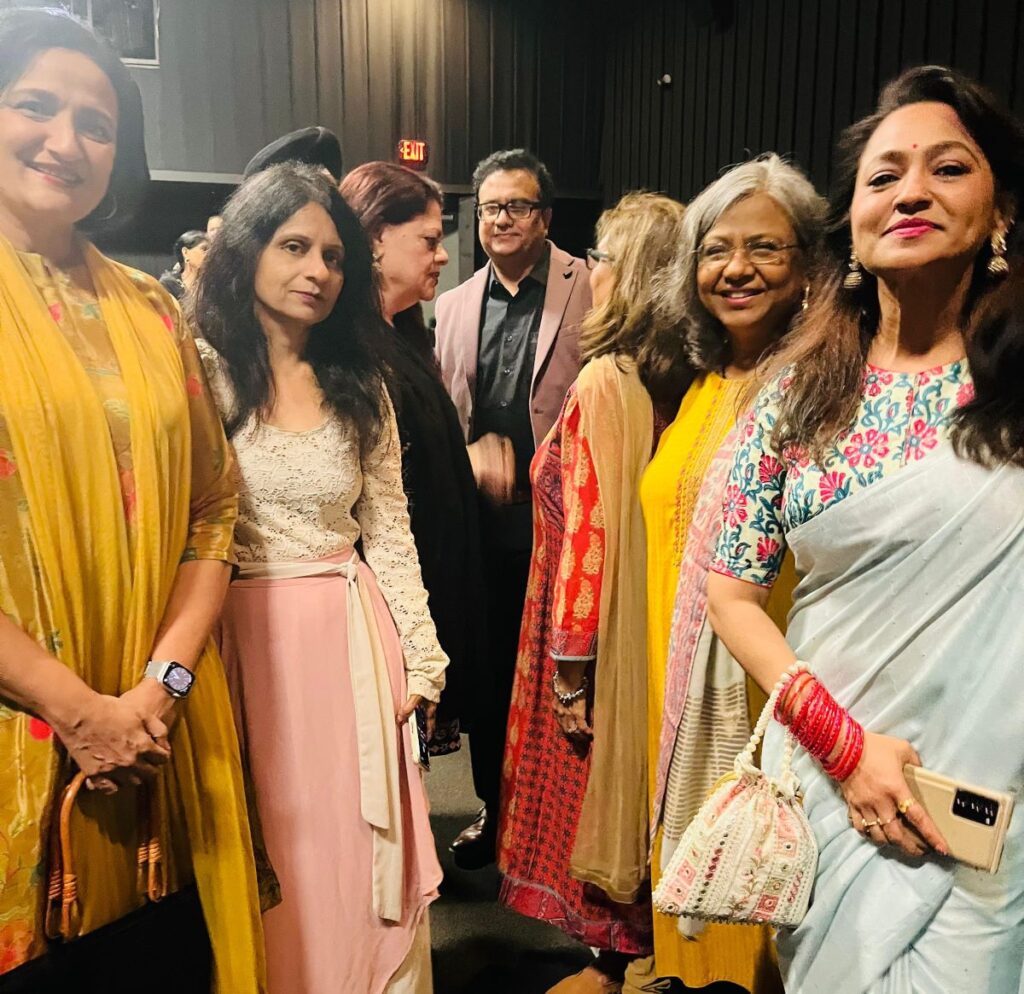
What does Paro leave us with? It leaves us unsettled, unable to retreat into comfort. It asks us to bear witness. It asks us to confront the fact that even today, in 2025, a woman can be bought for 700 rupees, less than the price of livestock. It asks us not to look away.
As Chhibber put it, “This movie should have the biggest platform globally. And here they are struggling even to release it.” Her words cut to the heart of the matter: cinema of conscience often fights its hardest battles not on screen but in the marketplace of distribution.
Yet one left the theater that night with a strange, fragile hope. Because in every question asked, every tear shed, every hand that lingered in applause, there was the sense that denial had been pierced. That people now knew. That silence had been broken.
And perhaps that is what Paro ultimately is—not just a film, not just a cause, but a testimony. A reminder that art can still resist, still bear witness, still demand justice. A call to conscience, urgent and unrelenting. A cry that will not be silenced.



